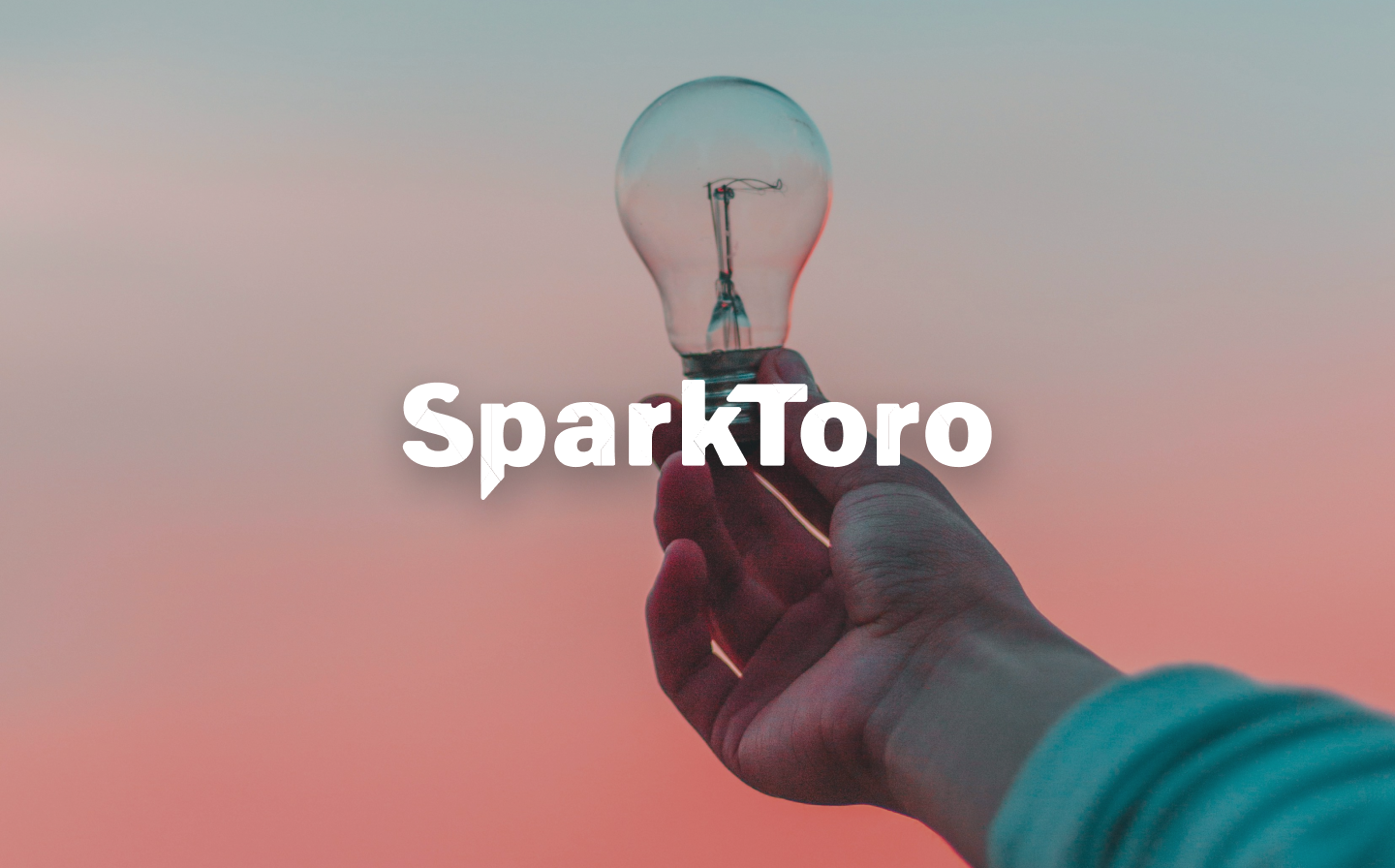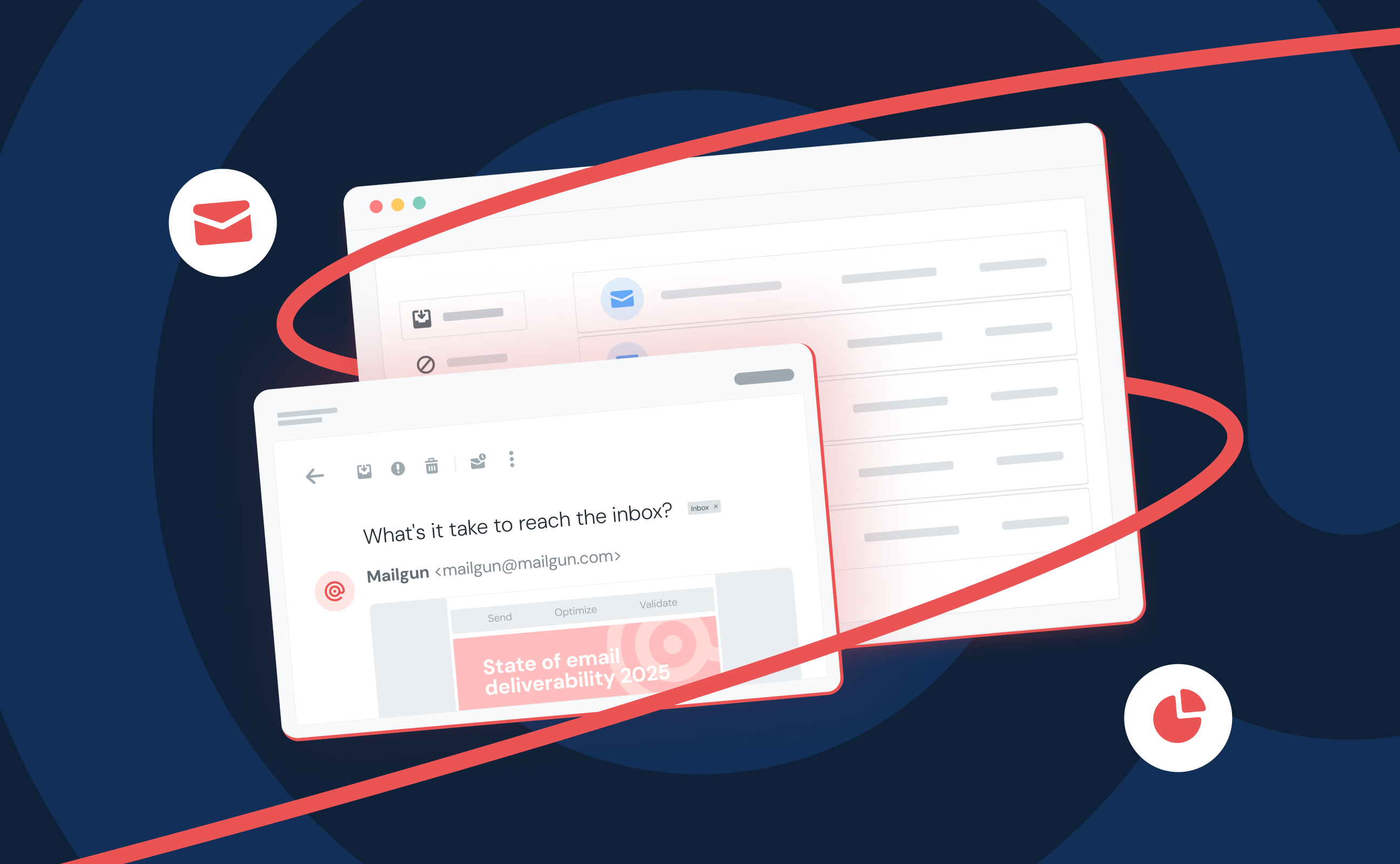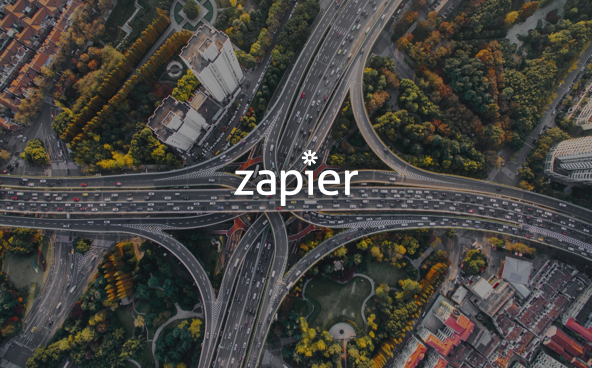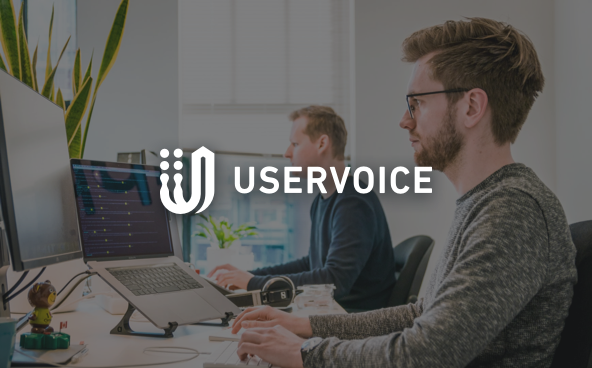Podcasts
What is M3AAWG and how can you get involved?
Email’s Not Dead: Season 5, Episode 6
What is M3AAWG and how can you get involved?
Email's Not Dead
About this episode:
On this latest episode of Email’s Not Dead, the M3AAWG organization stopped by along with their Brand SIG committee and board of directors to talk about all the amazing work they’ve accomplished. They’ve just celebrated their 20 year anniversary and they’re committed to making the internet a safer place. Learn more about the Messaging Malware Mobile Anti-Abuse Working Group and if you're in the omni-channel communication space why you need to become a member. Our guests for this episode are Mariska Calabrese, Sharon Kent, Melinda Plemel and Aref Zahed. Email’s Not Dead is a podcast about how we communicate with each other and the broader world through modern technologies. Email isn’t dead, but it could be if we don’t change how we think about it. Hosts Jonathan Torres and Eric Trinidad dive into the email underworld and come back out with a distinctive look at the way developers and marketers send email.
PUBLISHED ON
Meet your presenters
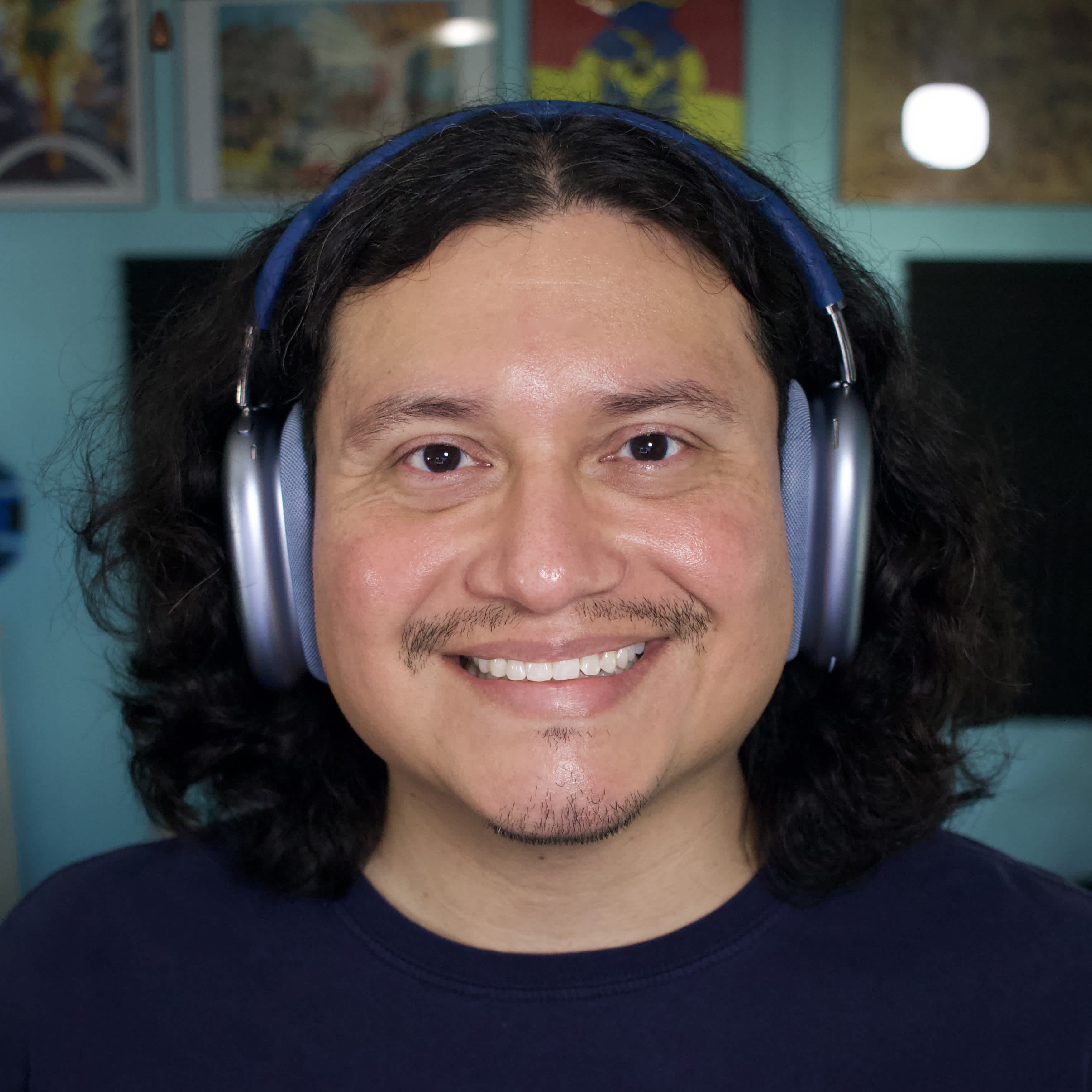
Jonathan Torres
Manager of the TAM team at Sinch Mailgun
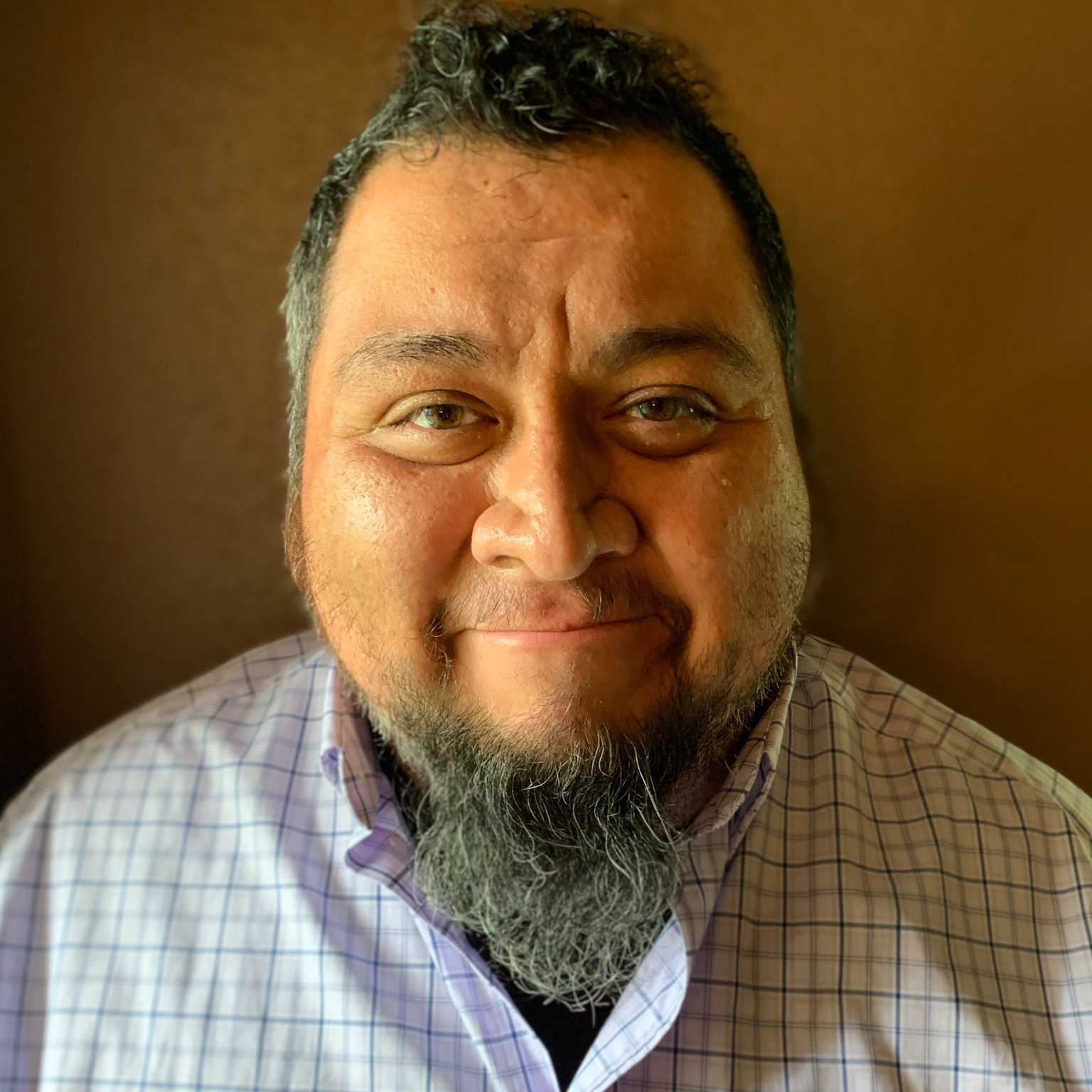
Eric Trinidad
Technical Account Manager II at Sinch Mailgun

Thomas “T-Bird” Knierien
Sr. Multimedia Content Specialist at Sinch Mailgun

Mariska Calabrese
Sr. Manager Information Security at Beehiiv, Co-Chair of Brand Sig at M3AAWG
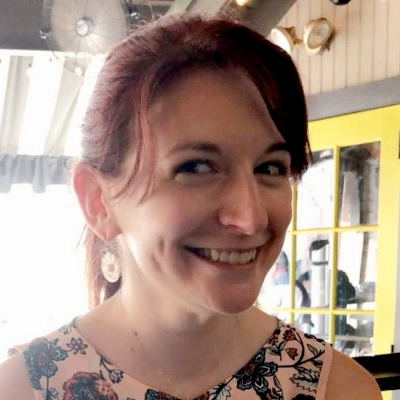
Sharon Kent
Co-Vice Chair, Board of Directors at M3AAWG
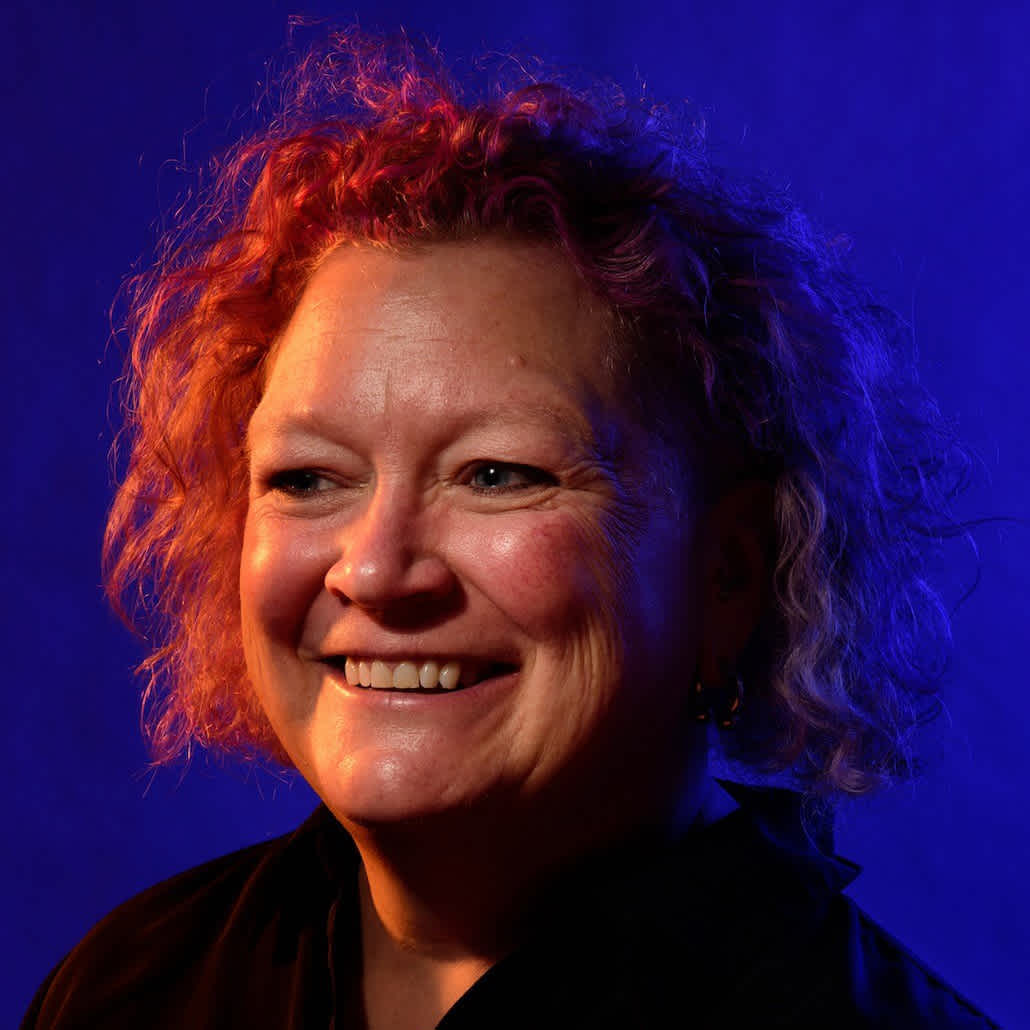
Melinda Plemel
Enhanced Services Specialist at Spamhaus, Vice Chair Brand Sig at M3AAWG

Aref Zahed
Security Engineer at Shopify, Co-Chair of Brand Sig at M3AWWG
transcript
Email’s Not Dead - S5, Ep. 6: What is M3AAWG and how can you get involved?
Overview
00:00:22 – Meet members of M3AAWG
00:02:00 – So what exactly is the M3AAWG organization?
00:00:00
Thomas Knierien: Welcome to Emails Not Dead. My name is Thomas T-Bird Knierien, and I'm not the usual voice of Emails Not Dead, but I'm stepping in to help Eric as he is away, but he'll be back next episode, so don't worry. Most importantly, I'm joined by my long haired brother, Jonathan J. T. Torres. J. T., how are you doing today, bud?
00:00:15
Jonathan Torres: Doing alright, man. Doing good. Good intro, thank you. Like, I know you're substituting. It's your first one, but yeah, you knocked it out of the park.
00:00:22
Thomas Knierien: Yeah, I've been practicing. I've been practicing for a week. I've been a little nervous, but Eric entrusted me to drive the bus, so I'm going to do my best. We've got an amazing panel from the M3 M3AAWG organization, and I'm super excited to have them here. And we're grateful to have them here with us today. And we're going to start from the top. First and foremost, we've got the Co Vice Chair and Board of Directors of M3, Sharon Kent. How are you doing today, Sharon?
00:00:42
Sharon Kent: Hi, yeah, I'm Sharon I am a Data Science Engineer for a large ISP. I'm also the Co Vice Chair for the Board of Directors at M3AAWG, so I'm here to talk a little bit about M3AAWG, what it is, what it does, and yeah, happy to be here.
00:00:55
Thomas Knierien: Awesome, super excited to have you with us. And then moving down the line, we've got Mariska Calabrese, Senior Manager of Information Security at Beehive, and the Co Chair of Brand Sig at M3. Mariska, how's it going?
00:01:06
Mariska Calabrese: I'm doing good. Thanks so much for having me here.
00:01:08
Thomas Knierien: Good to have you finally with us. We've all met a few years ago. JT and I got to meet Mariska. Mel. And you're going to meet them here in just a moment. So it's super amazing to have them on the show with us. All right. And then moving down the line, we've got Melinda Plemel, the Enhanced Services Specialist at Spamhaus and vice chair of brand SIG at M3. Mel, amazing that you're here with us today. How are you doing?
00:01:28
Melinda Plemel: I am thrilled that you have invited me to participate on this and this is awesome. And like you said, yeah, I'm part of the brand SIG team. We've been doing it for a little bit of time and I'm really looking forward to chatting about some email stuff with y'all.
00:01:42
Thomas Knierien: Awesome. Yes, we're very grateful you are here. And last but not least, Aref Zahed. The security engineer at Shopify and the co chair of brand SIG at M3. Aref, how are you doing today, my man? Good to have you with us.
00:01:54
Aref Zahed: I'm doing great. Thank you for welcoming us to your platform. Looking forward to discussing M3AAWG.
00:01:58
Thomas Knierien: Yes. Love it.
00:02:00
Jonathan Torres: This is a great panel. Like I'm excited about what we're going to get to talk about today. I'm always excited to talk about email also. So I'm happy that we always find people to talk email with because I can't live without it. So we'll go on with that. For those that are uninitiated, that may not know let's get right into that. So this one is going to go out to Sharon. You know, what exactly is M3AAWG? You know, M3 org when we start talking about that stuff.
00:02:25
Sharon Kent: Yeah. So M3AAWG is a really cool organization going on for 20 years. Celebrating our 20th anniversary this year, it was founded in 2004 and it's just a trusted environment where people from across the industry, email senders, mailbox providers, people all over the industry come and we look at creating best practices. We look at position papers. We have three general meetings a year and you hear over and over again at those meetings, what happens at M3AAWG stays at M3AAWG. And I think that's kind of the magic of what M3AAWG is, is people can share in this closed environment what they're seeing, how they're dealing with it, without giving away their secret sauce, of course, but working together to solve these problems. That's M3AAWG in a nutshell.
00:03:06
Jonathan Torres: Yeah, that's awesome. Yeah. And I mean, I think we have like a very particular group here within that that has participated in there. So, and we'll kind of get into that. So I think the first thing that we needed to define and just to kind of keep going with it, with a series of questions that I think we're going to all have we have brand sig. So first and foremost, what is a brand? Like I think that's the first thing we need to define, and then we'll kind of get into some of these nitty gritty. Anybody want to take a stab at it? What is a brand?
00:03:31
Melinda Plemel: This is Melinda. I'll give it a swing and stuff. I think any organization or company is essentially a brand in itself, right? Like we are talking about like M3AAWG, M3AAWG's a brand. Each one of our companies that we work for is a brand and essentially the brand, you know, they face issues that sometimes fall outside of just like an email issue or an abuse issue and stuff. And so the concept is to truly protect that entire entity. I think that the thing that sets brand aside is the state of the organization , and I don't know if Mariska or Aref want to throw in a little bit of their definition of it.
00:04:07
Mariska Calabrese: I think that the thing that sets brand aside is the stakeholders. The stakeholders for brand include everything from a marketing team to senior leadership, to security, privacy, legal, and everybody is invested and needs to work together in order to protect the brand from abuse and protect the employees, protect the perception of how the brand is perceived by external people and customers. And protecting our customers.
00:04:42
Jonathan Torres: Yeah. I think that really defines it. And I think it's one of the things that we've talked about, I think on the podcast, like quite a bit. You know, and I love just hearing the definition over and over again, because a lot of times it's the identifying piece of a company, right? Like it's not just the company name. It's the whole brand behind it. How people identify and relate to that name that they're seeing. Big thing and fairly important. I think when we're talking about this stuff and then we get down into the more identifiable thing for this group and what we're talking about is brand SIG. So we're talking about brand SIG within M3AAWG and what that does. Like, so yeah, I'll leave it to you guys to help define that. And we can start you know, digging into that a little bit.
00:05:17
Mariska Calabrese: Well, I think with brand SIG, one of the things that we aim to do is we aim to come together to find some of these issues that plague our communities. And try to work together to create strategies to take these problems head on and to mitigate issues. And how do we bring problems back to our organizations that people can actually listen and hear and understand what the problem is, but also help support with strategy to solve them. And so we work towards creating documents. And then we have a documentation that is digestible , not just from a technical perspective, but also digestible for any group within an organization to be able to take a best practice document back and go, Oh, I could be doing this, or I should be doing this, or I didn't think about doing it this way previously, but this is a really great way to go ahead and make headway with this issue.
00:06:28
Melinda Plemel: And I want to just add, I think one of the really important things about the brand SIG is what Mariska just touched on is the fact that we're reaching folks that may not necessarily be a technical background. And that's kind of the important part because a lot of the documentation that we do produce here at M3AAWG are of an extremely technical nature and are very specific to certain types of groups within organizations. We want to be able to take whatever we are defining as a best practice within M3AAWG and be able to have that. Consumable by folks that don't sit in this world with the rest of us. And they can actually look to make changes and speak to it in an intelligent way. So they can take that up to senior leadership or those folks that are actually making those decisions. And that's really the goal that we're trying to accomplish here.
00:07:14
Jonathan Torres: Yeah. I hear that. Anybody else want to add anything to that?
00:07:17
Aref Zahed: I wanted to add a little bit about you know, when we think of brands, we think about already established or known brands already typically, cause that's the first thing that comes to your head. Oftentimes we forget that, you know, every brand has a beginning and there's a journey that they go through. Coming up from a small to medium business and eventually ending up in a large spot. What we're trying to provide them with support with some of these publicly available documentation and guidelines is, you know, if you are an up and coming brand and you cannot necessarily hire you know, technical expertise within your budget levels, what are some of the standard things you can do to protect yourself and actually, you know, prevent abuse that may come towards you as you go through this journey, because time obviously is not static for any brands and, you know, today you may have a very small reach, but tomorrow you might be a very large brand and you want to protect that up front.
00:08:07
Jonathan Torres: Yeah, I hear that. That should be the dream, right? Like I think every company is trying to achieve that and try to grow bigger and be more recognizable. And I think, yeah, the protection of it is huge. It's also one of those things that like we've had this conversation a lot with a lot of different people is that you know, there's a lot of times when everybody considers themselves an expert. And when it comes to email, there's, I think, a select few people that consider themselves an expert. So knowing and having to find out information on your own can be scary. And you know, in all kinds of ways and anything out there to help, I think is one of the things that we encourage people to do, especially if you feel like you're intimidated by it. And I know a lot of people are. Like, find some help out there. And I think that's exactly what we're talking about here today. Along with that, so, yeah, like, next question on the board, right. Is what has brand Sig accomplished? What is out there now that toward this mission and toward the statement that you have achieved?
00:08:54
Mariska Calabrese: I think that our biggest achievement is actually something that one of our predecessors had this brilliant idea towards, which was putting together a kit for brands to be able to take back to their organization. And so we have been building out this kit which is available through the M3AAWG website under best practices. And it basically is our strategies and best practices towards the brand protection kit.
00:09:27
Melinda Plemel: We definitely have the brand protection kit, which I think is our gold star right now. But from that, we are seriously working on a couple other documentations that are very focused around like brand encompassing, like the mobile doc we're working on right now. You know, as a brand, what does that look like to have a mobile presence or at least being able to send communications via the mobile platforms and stuff. We're also got a couple of video series out there right now where we do talk about the brand kit and we break it down what that looks like. We're also working on a specific email sort of guidance for brands, which lives a little bit outside. It's very similar to what we already published for with the senders committee. However, once again, it's very focused on like that all encompassing brand and like to kind of go back to what Aref said a little bit earlier, we constantly think about like the smaller mom and pops, right? Of the world, because those are the ones like to, to Aref's point or the big brands, they've got it right. They figured it out. They know how to manage their, their systems, their brand, and it's a huge deal. But when you are a starting business, it's extremely overwhelming to take the steps necessary to be successful and to be successful on platforms where you're going to be able to communicate to your customers successfully. And so that's what we really try to look at is really break that down to smaller digestible chunks so they can absorb it a little easier and it's not frightening and they're not spending money that they don't necessarily have to spend money on at this moment and stuff until that point.
00:10:58
Mariska Calabrese: Yeah, one of the things that I like so much about our group is it really allows members to be able to help identify risk for their organization earlier on than they normally would be. Having the power of group thought to be able to identify those risks and to have the ability to quantify them to bring them back to their organization. I think it's very powerful.
00:11:25
Jonathan Torres: That's awesome. Yeah. And I think even more like in terms of like, speaking from this side of it, you know, there's definitely times that we see, the left hand, isn't talking to the right hand and, and everybody's kind of like uncoordinated. It sounds like, you know, this is also something to think about, like, and how to bring that coordination back in. Now that we've heard, this is something that's you know, out there, is it available for anybody to go out there and consume, right? Is it available for the public to do it.
00:11:47
Aref Zahed: It's definitely available on the M3AAWG website. If you go to the documentation section, the currently available document kind of breaks down your domain protection ideas and things to be concerned about. And as Mel mentioned, there's a YouTube video series that discusses this extensively as well. Hopefully, you know, we can have future published documents. That's it with some of the other things that brands face as well.
00:12:10
Jonathan Torres: Awesome. And I know under the for industry tab on the, website. And again from the podcasting side, right from my side and what we're here and trying to accomplish on the podcast is making sure that people have resources available to podcast in and of itself. To be able to do these things better. I think when it comes to email, everybody that works in email for the most part, like we consider ourselves a community. You know, within that and I think there's a lot of people that are outside of just the strict email community that are hopefully coming by and stopping here that could see resources like this, that you know, we're doing within this side of things to help out in a public way, because if we're all doing good things, if we're all doing better, then that just helps the entire email industry as a whole. And I don't think any one of us wants that to die. And when we talk about communication platforms and things like that's also a big thing that we're all trying to accomplish is just make this environment, a better place to be within you know, to keep it going and keep it thriving. It's out there, you can definitely find it. And is there anything that you can share to help senders, like utilize this information to help be better senders, to help participate in that. To improve.
00:13:16
Melinda Plemel: Well, first and foremost is absolutely. There are so many documentations that have been published. I mean, M3AAWG as Sharon said, this is our 20 year anniversary this year. And so we have literally as an organization grown with email and you know, everything that comes with email, abuse, or you know, phishing, anything else that is part of that. And so just being able to access those documents kind of give you that first step in. As long as you can follow best practices, you're at least starting off on the right foot. Right, and that gives you that ability to be better going forward as well and probably living outside what we call best practices and really being the best you possibly can be. But like, you know, being a good sender, I mean, there's so much involved, you know, with being a good sender. Even the best of us can kind of fall off at times and you know, the industry changes and so you have to kind of stay on top of that as it changes as well. But, you know, my first go to is a, If you want to start off on the right foot, look at the documentation, talk to other folks in the industry as well. And that's what M3AAWG's all about is that collaborative sort of coming together where we can share ideas and really discuss like what are we seeing? Or is anyone else seing this, you know, things like that, but yeah, start there and then start conversations and just participate in the ecosystem of email and stuff. And that will really help you become a better sender, you know, or at least much more. So you can speak to the folks that are making the decisions for you to become a better sender.
00:14:47
Jonathan Torres: Yeah.
00:14:47
Mariska Calabrese: Well, and the thing that I'd like to add that I think that kind of sets brand aside with sending practices. So one of the things that we talk about is I think in a lot of organizations, there might be pushback from leadership to want to send. And so we're able to develop these conversations. about how to address these types of topics with leadership to make sure that we are trying to follow best sending practices while coming up with a business argument to go ahead and support that and really be able to explain to the organization to articulate to them why it's important to follow best sending practices and what the return on investment actually is.
00:15:41
Aref Zahed: I think one more thing I would add here is that you know, M3AAWG kind of facilitates conversations between other senders, as well as brands that have previous experience in their journey and growth. This you know, we focus within the brand sake for more non technical guidance, but if somebody is looking for you know, an escalated pathway to understand the details about you know, how to have best sending behavior an organization such as M3AAWG can definitely assist you with others and networking is a big side of M3AAWG that kind of helps out in understanding what could be threats to your brand over time. And making sure you have the best posture.
00:16:17
Jonathan Torres: Yeah, that's awesome. That's a great thing to add. I know I have had the pleasure of meeting, I think most of you in person through things like that. It's just one of those things, like I think that interconnected again, talking about that whole thing, everybody wants to to help each other improve. And I think that's a really big thing. But yeah, that's awesome. I love hearing that. And you know, utilizing those resources, I know those conversations are another thing that we've talked about on the podcast previously of having to take what, you know, what you've learned, everything that, you know, is the right thing to do. And then go internally, right to other departments, to, you know, leadership and having those conversations I know is like sometimes intimidating and something that doesn't always happen and something that maybe people aren't used to or having to do for a lot of the other stuff that they do. Because you know, we've heard everything under the sun of, you know, things from like, just send out email. It's impacting ROI. Just do it kind of thing without considering anything, but doing it the right way, I think is, is where it comes in and where that brand protection really like links back into everything of you having to do it the right way, because you can really damage things if you're not doing it in the right way, considering some of those right things. And I mean, along those lines. I know you know, having you guys here today and being able to talk about this and kind of like those resources that are out there and what we're doing what are the goals? Like, I know to get you guys here today on the podcast is a dream of ours. I know myself. Thomas, Eric you know, like we love having people like you on here that have experience, that have knowledge that are working for these companies that have brought that knowledge piece. And now, you know, representing the M3AAWG side of things and what is going on there within the brand SIG. So why the podcast today? And, you know, is there anything that we can help with or that our audience can help you guys with?
00:17:52
Melinda Plemel: I think one of the main goals is definitely, we want to grow our SIG. We want more people involved. We want to make sure that we're supporting in the right way, right? Like when we talk about brands and stuff, like definitely the smaller brands is where we want to get more insight from like, what are the challenges when you're first starting to build your brand and stuff? And are these documentations that we're putting together , are these helpful for you to really navigate and move forward? Because at the end of the day, I think all of our goal is to make the internet a safer place. Like I think, the goal of all of us that are sitting on this podcast right now and everyone that attends M3AAWG and as, if we're able to, you know, translate what that looks like and how you are able to, you know, step through the process to be a better sender and have that greater trust on the internet, then that's the goal. We want to build that out. We want more people involved. We want folks that don't necessarily feel like they might get something out of M3AAWG or belong at M3AAWG because they're not necessarily a technical person or they're not necessarily in abuse. You're our people. You are part of what we're trying to do as well. And we want your voice and your insight so we can only grow and become better as an organization and as an ecosystem for sure.
00:19:05
Jonathan Torres: That's awesome. I felt like it all came back around to like our earlier point of, you know, it's a journey, right? Like not everybody's at that point where it's you know, everything, you have all the answers, you have an entire team backing you on this stuff. Like it's, it's one of those things that like, you know, everybody starts off at a different point. So like bringing it slowly there.
00:19:23
Melinda Plemel: And just to that point, Jonathan, like, I think that, you know, so people can become really intimidated when they don't understand this industry, right? It can be scary. Like when you talk about email, like when you know, in the beginning, when we all first, before we even began, it was, we had no idea what all of this world encompass, you know what I mean? We just came in and we push a button, a bunch of email goes out. Well, you know, actually there's a lot of parts to that. And it can be very intimidating to be part of this group with a lot of professionals. And we want to like, break down those barriers as well. We want you to come in and realize that you have a support system here and that's what we're willing to do is like really support you to be able to become that much better at sending email at you know, fighting off spam at looking at like where your vulnerabilities may be in your own brand and stuff like that. And so that's the one thing I really do want to express is like, you're all part of us. You're part of us. Please participate because we're looking for your voice for sure. We want to hear it.
00:20:18
Mariska Calabrese: Well, I think you said something like, really great. Which is, that it is intimidating. And I think that all of us have gotten here because of negative things happening. And so, you're already walking into a situation that you feel overwhelmed and you're feeling negative. And I think one of the biggest takeaways that I've gotten from M3AAWG is, it's like having this nest that everyone is supportive. And everyone's there to help and to foster this environment that is the exact opposite of what we deal with in our daily lives. It's like a life rope and it is so refreshing and I love being there because of that.
00:21:08
Aref Zahed: The entire ecosystem and the internet works on loosely held standards that everybody kind of abides by from a technical standpoint. And when we collaborate and we kind of, work together to make things better, it actually benefits everybody in terms of not just technical deliverables, but also, you know, the economy and dependency and brand awareness and anything else that a business might thrive on. That's something unique to M3AAWG where I feel like, you have a lot of existing relationships that you can kind of, right on top of, and you can also. Introduce new businesses that might be interested or new entities that might be interested in the space to raise awareness.
00:21:51
Jonathan Torres: Sharon, I don't know if you want to add anything.
00:21:53
Sharon Kent: Yeah. I think, I think Mariska described it as like a nest, right? Like I remember my first M3AAWG being, Oh, this is a community. Like this isn't just a conference. This is a community and people are working together each other and to support the overall mission of a safer internet.
00:22:11
Jonathan Torres: I've felt that way you know, being able to be a part of it and kind of go and be part of that community. I completely agree. Like, it's just one of those things that is good to feel welcomed in a space like that. You know when there is that other factor of being intimidated and not knowing sometimes You know, things going in that direction, but you know, I completely agree with that sentiment just to throw that out there and put in my two cents. I know we're kind of running out on, on, on time. There was a few things that I think we wanted to cover, but we didn't get to exactly. So maybe this is a slight invite for future sessions if anybody wants to come in and talk about some of those things. But anyway, we'll leave it there. Thomas, do you want to outro us?
00:22:44
Thomas Knierien: Yeah, for sure, for sure. Really quick, though, I wanted to ask the group here. We always ask our guests if there's anything that they would like to remind our viewers that we want them to check out. Is there a link or anything that you want our listeners To follow along with or to just stay in touch with for the M3 organization.
00:23:01
Aref Zahed: Well, there's the main website M3AAWG, which is spelled with m3aawg.org. And if you're looking for our specific things, you can just search for a brand protection kit on the sidebar in the search section.
00:23:12
Sharon Kent: Just thinking if there's anyone listening, who thinks this M3AAWG thing sounds great, but you're not a member, you're wondering what membership is like. You can look at the about us tab on the website and click on join us. Learn about membership.
00:23:25
Melinda Plemel: Be one of us.
00:23:26
Thomas Knierien: Yes, exactly. And to our listeners, yes, JT, Eric, and I are all members. We've had a ton of members here on the podcast. And this is the part where Eric always asks me, Thomas, where do we want to send our listeners to keep following along with what we're doing? Well, ladies and gentlemen, make sure to follow along with us at mailgun.com/resources/podcasts. We'll also make sure to include some of the M3AAWG links and other parts that you can kind of follow along with all the amazing things that we are doing, but we want to go ahead and thank Mariska, Aref, Sharon and Melinda and the M3 org for joining us today. You guys are amazing. So thank you so much for being here with us.
00:24:02
Melinda Plemel: Right on. Thank you.
00:24:05
Thomas Knierien: Take care everyone. See you down the line.
